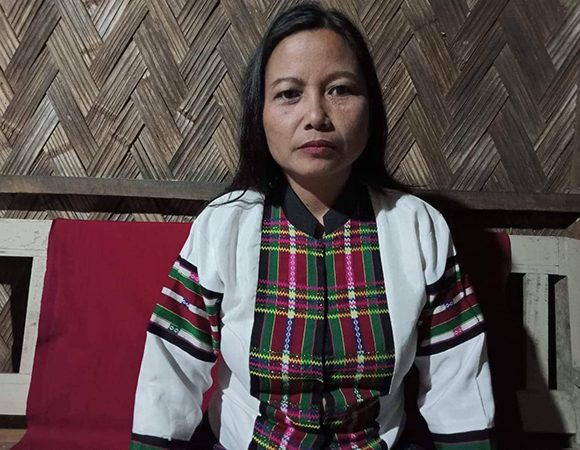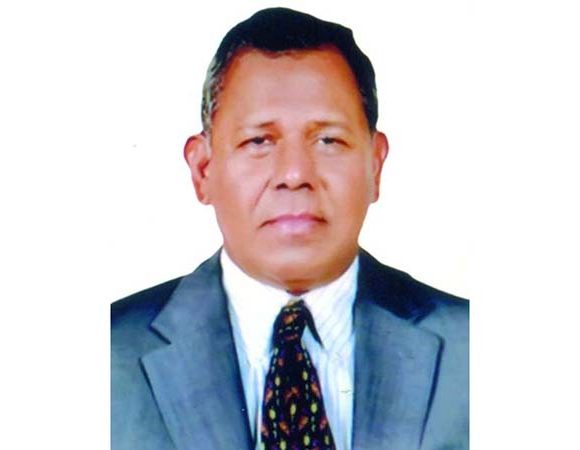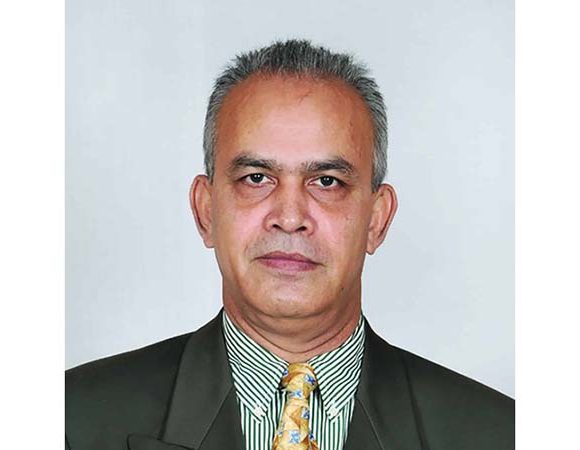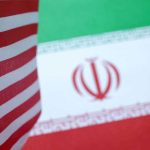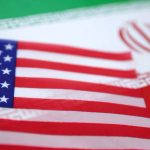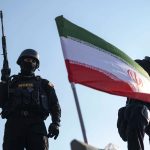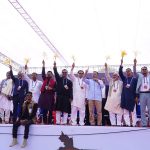“Tell the world what you saw’: The appeal of an elderly Palestinian
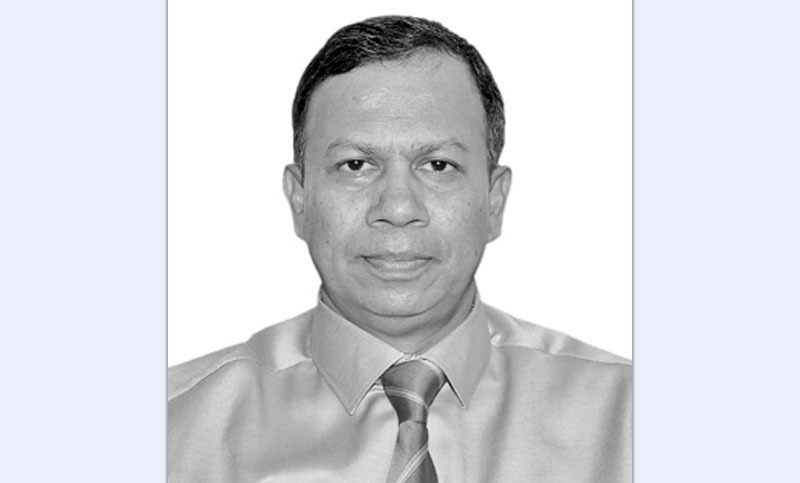
Lt. Gen. Dr. MOHAMMAD MAHFUZUR RAHMAN
In 2014, I took the opportunity to visit Israel and Palestine from ‘The Royal College of Defence Studies.’ It was a focused study tour to understand the realities on the ground and a unique chance to listen to Israeli and Palestinian viewpoints encompassing civil, military, establishments, think tanks, academics, journalists, international NGOs, and diplomats of different countries stationed there, including the general public. With so much catastrophe going on in Gaza, snapshot memories of my 2014 Israel-Palestine visit surfaced in bits and pieces that I would like to share. It might look like a jigsaw puzzle; however, when the pieces are put together, it might give a picture to the readers.
The Israeli embassy in London turned down my visa request, later possibly interference from my Israeli friend, Brigadier General Aron, who facilitated getting a visa. Aron told me: ‘your understanding of Israel may be all negatives, but this visit may change some of your preconceived ideas.’ He was right but I am not touching upon that today. I remember once I asked Aron about the brutality of the Israeli law enforcing agencies on Palestinian civilians. He answered: ‘Arabs (they do not term them as Palestinian) only respond to disproportional brutal approach.’ He also said enough concession has already been given to Arabs by allowing them to remain in the West Bank; even the East Bank of the Jordan River (inside Jordan) belongs to Jews. My Indian friend told me, ‘After visiting Israel, you would say they have a point.’ Everywhere you go in your organized visits, everyone will so passionately tell the same story as to how they have suffered throughout history, ending with the Holocaust. They would argue that people from all major religions have stated Muslims have 50 states, and all Jews are asking to have a tiny state and live in peace. Still, Arabs are a constant threat to their existence. Visitors may likely understand that there is a rationale for this trauma-landed nation to react disproportionately to the threats from the existential psyche.
While visiting Ramallah in the West Bank, a Palestinian man approached me for help; I asked him about his family, and he told me he had seven children. I followed up with another question: Why have so many children while suffering from this economic and social hardship? He answered that some of the children would be moving targets for the Israeli Defence Forces (IDF). What an unbelievably painful answer from a father in the 21st century! Yet, we call ourselves civilized. The inhuman massacre happening in Gaza now substantiates his statement.
In Jenin, we had been visiting Israeli settlements and the Jenin Palestine area. They are collocated; in one street, we found all Palestinian shops sealed because a Palestinian stabbed/killed a Jew settler in his shop a few years back. So, IDF closed all shops in the street. They mostly respond with collective punishment. In another street, all doors and windows were blocked/ wire meshed. Palestinians cannot use the street or front doors; they can only use back doors and windows to access the outside world. IDF soldiers patrolling in the Palestinian area, checking posts, roadblocks, picketing, and harassing Palestinians will not escape your eyes. But what bewildered me was that some hundred meters away, one could see some Israeli settlers enjoying a family weekend barbeque in their backyard. The irony of humanity is that the difficulties of one group are not touching the consciousness of the other. How can they live as neighbours in this absence of empathy?
While visiting Jerusalem, we went to the old part of the city. Both Jews and Arabs have souvenir shops. A Palestinian shopkeeper was happy to know I am a Muslim from Bangladesh. In a short time, I discussed a few issues about their lives in Jerusalem. While departing, he told me, ‘Do not forget us’. In the forgetfulness of collective memory, we forget the pain of others. Our group had two other Muslim members, one from Indonesia and the other from Kazakhstan. We decided to visit Al-Aqsa, and the British High Commission facilitated it. A guide accompanied us. Al-Aqsa is guarded by IDF soldiers. At the checkpoint, our identity and documents were checked. I was allowed to enter. They did not allow the Kazak to enter. The guard at the post said something in ‘Hebrew’ and another guard came out from the rest area; in a short interview, he did not allow our friend to enter. I asked the guide what the soldier said in ‘Hebrew.’ This shocked me. He said, ‘There are three visitors, two Muslims, the other guy does not ‘smell Muslim’ (generally only Muslims are allowed to enter Al-Aqsa).
When coming down from Gethsemane, the garden at the foot of Olive Mount where Jesus was arrested before the crucifixion, I noticed a graveyard where both Jews and Muslims are buried, separating them with a fence. On the Jewish graves, there were pebbles (visitors put small stones to mark their visit), while the Muslim graves were without pebbles; otherwise, there was not much difference. Death has brought them side by side to lie in peace. Possibly, this should send a message to both communities.
In Hebron, things looked gloomier; in the course of the visit, an elderly man, likely in his seventies, was trying to say something and walking behind us for some time. Since he spoke in Arabic, we could not fathom him. Later, the interpreter came to our help. The Palestine septuagenarian was constantly saying, ‘I am not asking anything. Only listen to me.” We were walking on the main street of the Palestinian neighborhood; on the left side, the houses were on hillocks, but we noticed people were getting down from vehicles and carrying their loads in their hands or heads. Vehicles, including ambulances, are not allowed on streets/bylanes in the hills. This is a kind of pressure tactic to sell their lands to Jews in their neighborhood. He told us that climbing the side lane to his house is difficult for his pregnant daughter. Finally, he implored, ‘Tell the world what you saw’. In my humble way, I just tried to tell my readers the plight of Palestinians; you may have your interpretations.
So, what is the future? The two-state theory based on religion has proved to be a failed option elsewhere. It is the arousal of the democratic and collective consciousness of all, especially among the people of Israel, that can build a habitat of equality and justice from the River to the Sea.
♦ Lieutenant General Mohammad Mahfuzur Rahman, Ph.D., is a retired officer of the Bangladesh Army and a Security Analyst. He is also a former Principal Staff Officer of the Prime Minister’s Office.

